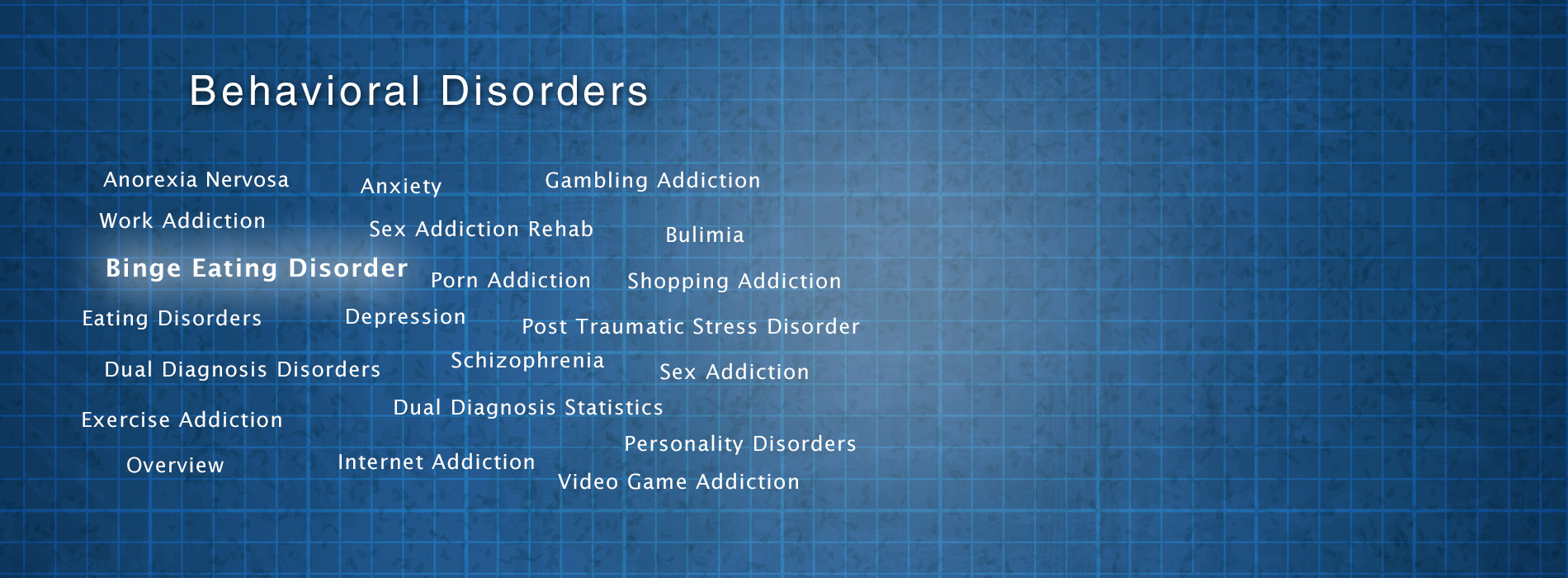
Binge Eating Disorder
When people think of eating disorders, they most often think of the ones in which a person deprives themselves or purges themselves of their food. However, disordered eating other than restricting and purging can warrant the diagnosis of an eating disorder. Binge eating disorder is one of these diagnoses, and it affects 3.5% of women and 2.0% of men in the Western world.
Binge eating disorder (BED) is characterized by episodes in which a person experiences uncontrollable eating and eats much more than would be considered normal in one sitting. Binge eaters will even continue eating once they feel full to the point of becoming uncomfortable. These episodes of binge eating are often followed by feelings of shame and guilt. The person may diet extremely or fast in order to compensate for the binge, which is part of a cycle of binging and fasting. Once the person has been dieting for a few days, cravings and stress build up and culminate in a binge eating episode, causing the cycle to repeat itself.
Binge eating episodes can also be triggered by boredom, which then snowballs into a binge once the person feels they cannot stop. Other people may binge eat to cope with everyday stress or memories of past trauma. Binging can lead to obesity over time, which may result in other health problems that can worsen feelings of depression or guilt.
People with binge eating disorder feel like they cannot stop once they start binging and feel out of control of their relationship with food. They often feel shame or disappointment towards their appearance that preoccupies them so much that it negatively affects their social interaction. They may not eat in front of others because they are embarrassed of how much food they consume. Binge eaters have difficulty gauging how much food is enough when they are hungry and often prepare too much food that they cannot stop themselves from eating.
A person can binge eat without having binge eating disorder. The disorder is linked with the negative emotions that come along with the act of binge eating. In order to warrant a diagnosis of binge eating disorder, binging must occur at least once weekly for three months. Binge eating disorder differs from bulimia nervosa in that people with BED do not purge after they have binged. BED can occur in individuals who are of normal weight, in addition to overweight and obese people.
Therapy for binge eating attempts to address any negative self-image the individual holds as well as any other mental disorders that are occurring together with BED, such as depression. It also aims to provide the patient with coping mechanisms to prevent episodes related to stress or trauma. Medication may be prescribed to decrease appetite or reduce cravings. Overeaters Anonymous and Food Addicts in Recovery Anonymous are two groups that help binge eaters build a support system to aid in their recovery. Bariatric surgery is often recommended as a treatment option, but surgery has poor results if not coupled with long-term therapy.
![]()

